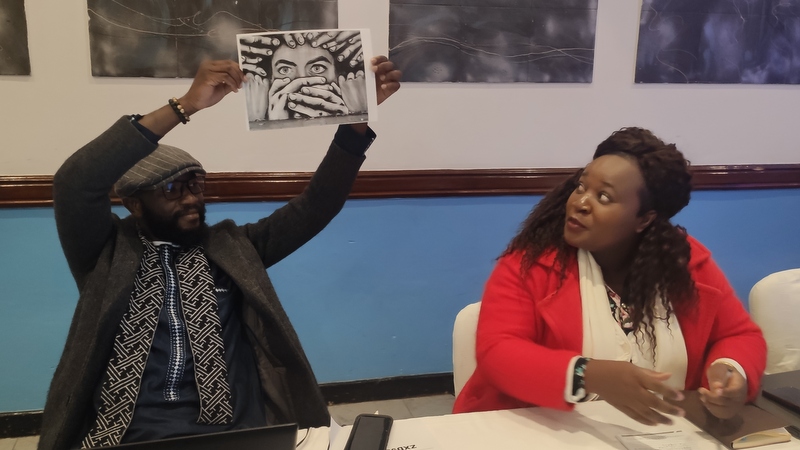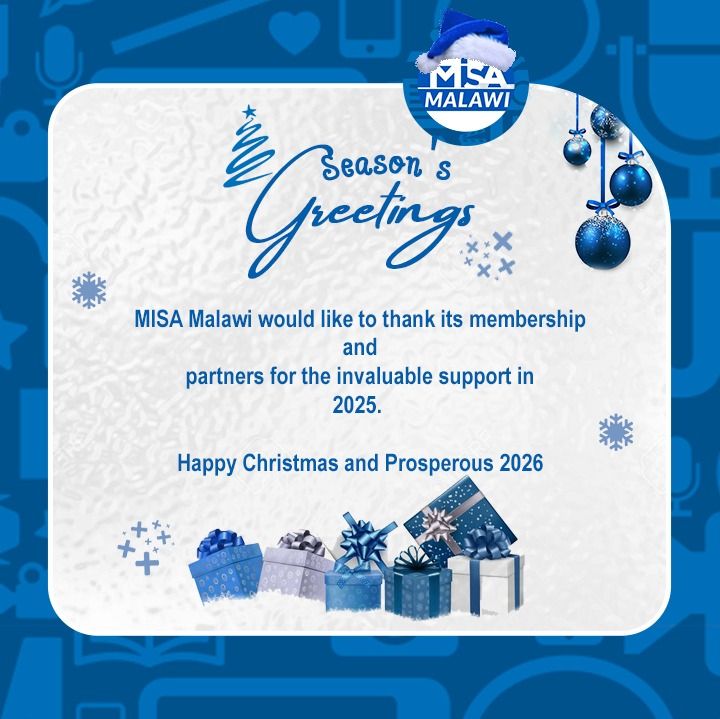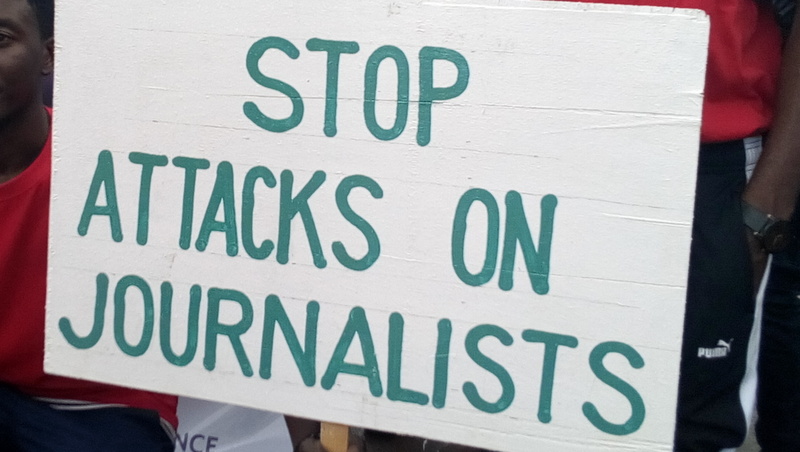MISA Malawi is consulting various stakeholders to understand limitations around freedom of expression in Malawi, amid continued arrests of citizens on allegations of insulting those in authority including the president.
The consultations are part of a process to develop a petition to be delivered to the President and the Parliament to review or repeal laws that are seen to be capping the constitutionally enshrined freedom of expression.
“MISA Malawi has numerous times engaged political leaders and policymakers on the need to decriminalize defamation and repeal insult laws. This is not to say we condone people using their freedom of expression irresponsibly but the injured can still use the civil laws to seek redress,” explained Teresa Ndanga, MISA Malawi Chairperson.
Through its programme Illuminating New Solutions and Programmatic Innovations for Resilient Spaces (INSPIRES), MISA Malawi is working with various stakeholders to enable and protect the civic space in Malawi.
Explained Ndanga; “The INSPIRES programme specifically aims to increase knowledge and capacity to respond to growing restrictions on democratic freedoms of association, assembly and expression. These restrictions can be in form of broad and vague laws that limit free speech and free expression in the name of security, curtailing hate speech and defamation.”
In partnership with the International Center for Not-For-Profit Law (ICNL), MISA Malawi has so far engaged journalists, women and persons with disabilities, Area Development Committees in various districts of Malawi and Civil Society organizations on the laws that guarantee and limit freedom of expression.
The Extent of Freedom of Expression
Today we live in a world where the International stage has laid foundation for Human Rights Law through declarations and Resolutions. One such declaration is article 19 of the Universal Declaration of Human Rights of 1948 which grants all people, in all countries around the world, the freedom to hold opinions without interference, and to seek, receive and impart information and ideas through any media regardless of frontiers.
About 54 African states are signatories to this declaration. The protection of the rights and freedoms set out in the Declaration have been integrated into many national Constitutions and legal frameworks. In-fact, Section 35 of the Constitution of Malawi expressly says that every person shall have the right to freedom of expression. The Irony however is that Malawi has over 30 statutes that restrict freedom of expression; the very freedom so graciously provided for by the country’s supreme law.
Restrictive Laws On Freedom of Expression
Some of the laws that restrict freedom of expression are; Section 4 of the Protected Flags, Emblems, and Names Act; Sections 51,60,61,200&201 of the Penal Code; Sections 24&32 of the Electronic Transactions and Cyber Security Act; the Official Secrets Act; Sections 25&39 of the Police Act, sections 4,49 (b) &60 of the Courts Act, etcetera.
Malawi has had cases where individuals have been arrested for allegedly insulting the name of the President or his wife. MISA Malawi does not condone the act of insulting names or people, however we suggest that those that feel insulted should seek legal remedy in a civil court and that the act of insulting someone should not be treated as a criminal offense as is currently the case.
As a matter of fact, citizens of Malawi have also been arrested on the assumed intention that they wanted to injure the reputation of prominent members of society by simply forwarding a message on various online platforms. Sections that speak of intent to defame or injure the reputation of others like sections 200 and 51 of the Penal Code do not clarify on the basis to which intent is measured, after all intention is an abstract construct, how can one establish the intent of another without being in the mind of the accused. Why should laws permit arrest based on assumed intention? It is highly subjective.
Interventions So far
Regrettably, everyone can be a victim of such regressive laws. Vulnerable groups suffer greatly when met with such allegations. This is why MISA Malawi embarked on a mission to build capacity of the elderly, Women and Persons with disabilities on the laws that guarantee and limit freedom of expression. In-fact, MISA Malawi did not stop there, Area Development Committees in various districts of Malawi, the media sector, and Civil Society organizations were also engaged on the same.
Subsequently, these engagements led to the development of a petition planned to be presented to the President of Malawi and copied to relevant Committees of Parliament. The contents of the petition include a list of prioritized laws that restrict freedom of expression based on three factors. First, frequency of use of the law; second; its inability to pass the constitutional test set by section 44 of the Constitution which provides for conditions for limitation of freedom of expression; and third, the level of interest of human rights defenders to challenge the restrictive laws.
Way Forward
“MISA Malawi is determined to safeguard freedom of expression in Malawi. Freedom of expression is key mechanism to a functioning and healthy democracy. It is an essential driver for civic participation. Any restriction to freedom of expression has the capacity to weaken Democratic societies. MISA Malawi will continue to vigilantly strengthen Democracy by safeguarding its essential drivers by, among others, pushing for review of the laws that restrict freedom of expression,” said Ndanga.









